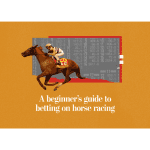Overview of Sport Betting Companies
Sport betting companies are a significant player in the gambling industry, offering a wide range of betting options on various sports events worldwide. These companies facilitate the placement of bets on outcomes of sports events, attracting both casual bettors and more serious gamblers looking to profit from their sports knowledge.
With the rise of online betting platforms, sport betting companies have expanded their reach to a global audience, providing accessible betting opportunities around the clock. These companies often offer competitive odds, promotions, and features to appeal to new customers and retain existing ones, creating a dynamic and competitive landscape within the sports betting industry.
Understanding the Odds
Odds in sports betting represent the probability of a specific outcome occurring. They are typically presented in different formats such as decimal, fractional, or American. For instance, in decimal odds, a number like 2.50 means that for every unit wagered, the bettor stands to win 2.50 units in addition to the original stake if the bet is successful. Understanding these odds is crucial for making informed betting decisions.
Furthermore, odds also reflect the bookmaker’s assessment of the likelihood of an event happening. Lower odds indicate a higher probability of the outcome occurring, whereas higher odds suggest a lower probability. By analyzing these odds, bettors can gauge the perceived chances of an event and evaluate whether the potential payout justifies the risk. It is essential to grasp the concept of odds to navigate the complexities of sports betting and capitalize on favorable opportunities.
Commission on Bets
When placing bets with a sports betting company, it is essential to be aware of the commission that is typically taken. Known as the “juice” or “vig,” this commission is essentially the fee that the bookmaker charges to facilitate the bet. It is usually a small percentage of the total wager amount and is how the company makes a profit.
The commission on bets can vary depending on the sportsbook and the type of wager being placed. While some bookmakers may have a standard commission rate for all bets, others may adjust this fee based on the specific odds or risk involved. Understanding how the commission on bets works can help bettors make more informed decisions when choosing where to place their wagers.
House Edge
The house edge is a crucial concept to grasp when engaging in sports betting. It represents the advantage that the betting company has over the bettors, ensuring that the odds are in their favor in the long run. This built-in advantage allows betting companies to make a profit while still providing opportunities for bettors to win. Understanding the house edge can help bettors make more informed decisions and manage their expectations when placing bets.
It’s important to note that the house edge varies depending on the type of bet and the specific odds offered by the betting company. Different sports and markets may have different house edges, so it’s essential for bettors to research and compare various options before placing their bets. By being aware of the house edge and how it influences their potential returns, bettors can strategize and approach their betting activities more effectively.
Balancing the Book
Bookmakers have a challenging task of ensuring that they balance their books effectively to minimize their risks. This involves adjusting the odds or stakes on various outcomes to ensure that they are not exposed to significant potential losses. By carefully managing the odds and stakes, bookmakers aim to create a situation where they will make a profit regardless of the outcome of an event.
One common strategy used by bookmakers to balance their books is to adjust the odds in response to the volume and distribution of bets placed on different outcomes. By continuously monitoring the bets coming in and making small adjustments to the odds, bookmakers can mitigate the risk of a large payout on a particular outcome. This dynamic process of balancing the book requires a deep understanding of market trends, customer behavior, and the specific dynamics of each sporting event.















